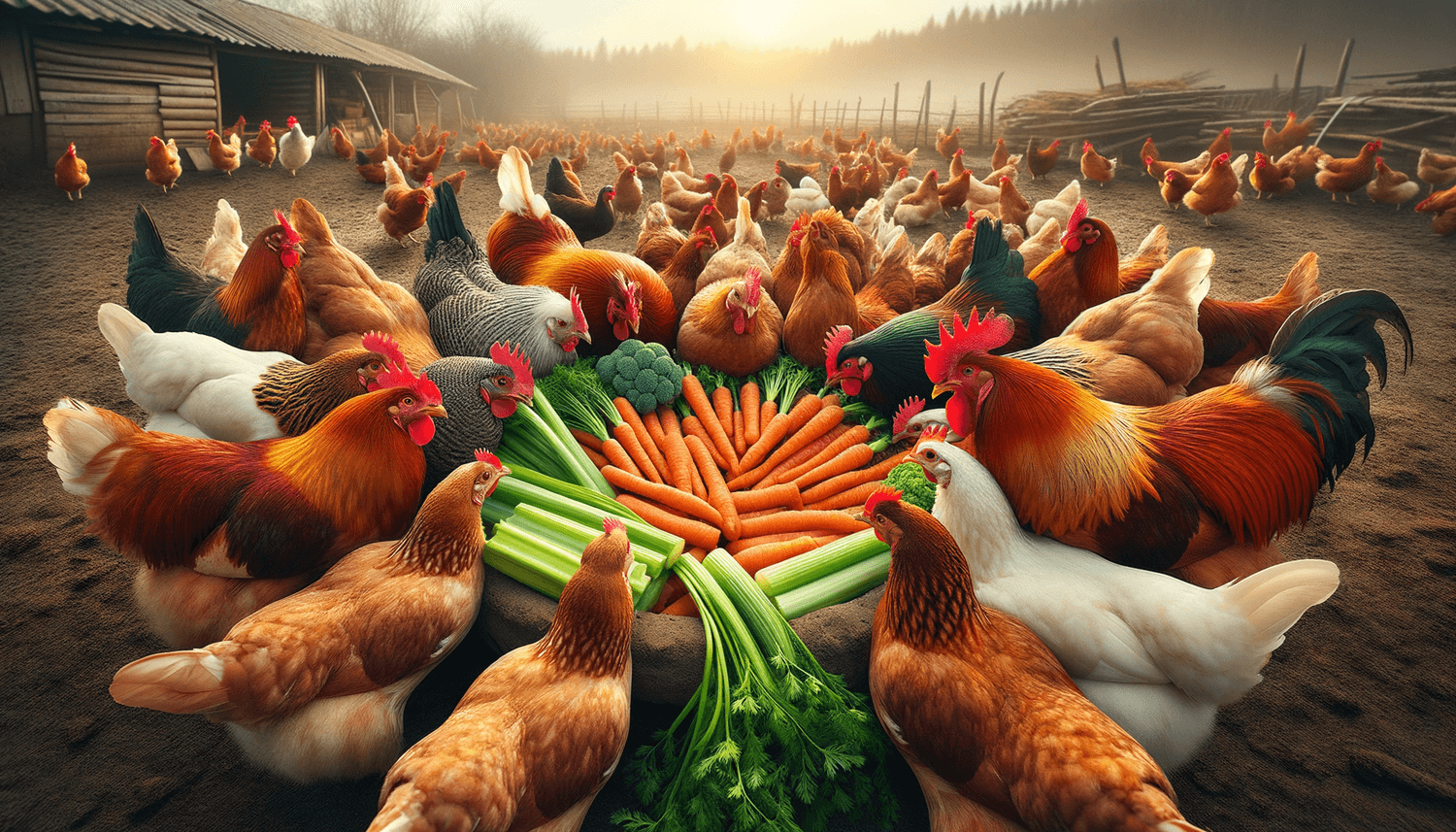Yes, chickens can eat both carrots and celery. Carrots are a nutritious vegetable for chickens, packed with vitamins, such as vitamin A, that support good vision and overall health. Celery, while less nutrient-dense, provides a good source of hydration and can be a crunchy treat for chickens. It’s important to feed both carrots and celery in moderation and ensure they are cut into appropriate sizes to prevent choking.
Quick Summary
- Chickens can eat carrots and celery.
- Carrots are rich in vitamins and offer health benefits. Celery is less nutritious but provides hydration.
- The key benefits include good vision support from carrots and hydration from celery. Risks include potential choking hazards if not properly prepared.
- Recommended feeding guidelines include offering these foods in moderation, chopped into small, manageable pieces for the chickens.
Overview of Carrots and Celery
Carrots are root vegetables known for their bright orange color and high content of beta-carotene, which is converted into vitamin A in the body. They also provide fiber, vitamins K and C, and potassium. Celery is a crunchy vegetable primarily composed of water, but it also contains a small amount of dietary fiber, vitamin K, and folate.
Benefits and Risks of Carrots and Celery for Chickens
Feeding chickens carrots can improve their immune system and vision health due to vitamin A. They can also aid in digestive health because of their fiber content. Celery, while not as nutritionally robust as carrots, can serve as a low-calorie treat that helps keep chickens hydrated. However, both should be given in moderation to avoid excessive intake of any nutrients. There is also a potential choking hazard, particularly with celery strings or large pieces of carrots, which must be managed by appropriate preparation.
Feeding Guidelines
Carrots and celery should be washed and chopped into small pieces before offering them to your chickens. Remove any tough strings from the celery to prevent choking. These vegetables should be provided as an occasional treat and not replace a chicken’s main diet of commercially formulated feed. As a general rule of thumb, treats including these vegetables should make up no more than 10% of a chicken’s daily food intake.
Alternatives
If for some reason carrots and celery are not suitable or available, other safe alternatives for chickens include chopped leafy greens, cucumbers, and apples. These also should be given in moderation and prepared properly to ensure they are safe for your chickens to consume.
Expert Opinions
Poultry nutritionists and veterinarians agree that a varied diet is essential for chickens’ health. They typically support including vegetables like carrots and celery as part of a balanced supplementary diet. Studies show that the beta-carotene in carrots can improve the color of egg yolks and overall poultry health, but moderation is key to avoid nutrient imbalances.
Frequently Asked Questions
Upon understanding if chickens can eat carrots and celery, here are some additional questions that may arise regarding their inclusion in a chicken’s diet:
How often can I feed my chickens carrots and celery?
It’s best to limit feeding carrots and celery to a couple of times per week to ensure a balanced diet and to treat these foods as a supplement to a chicken’s primary feed.
Do I need to cook carrots or celery before feeding them to chickens?
It is not necessary to cook carrots and celery for chickens. They can be given raw, provided they are washed and cut into appropriate sizes to prevent choking.
Can chicks eat carrots and celery too?
Chicks can have carrots and celery as well, but they must be grated or finely chopped to match their smaller size and prevent choking. Chicks also have more specific nutritional needs, so vegetables should only be a minor part of their diet.

















